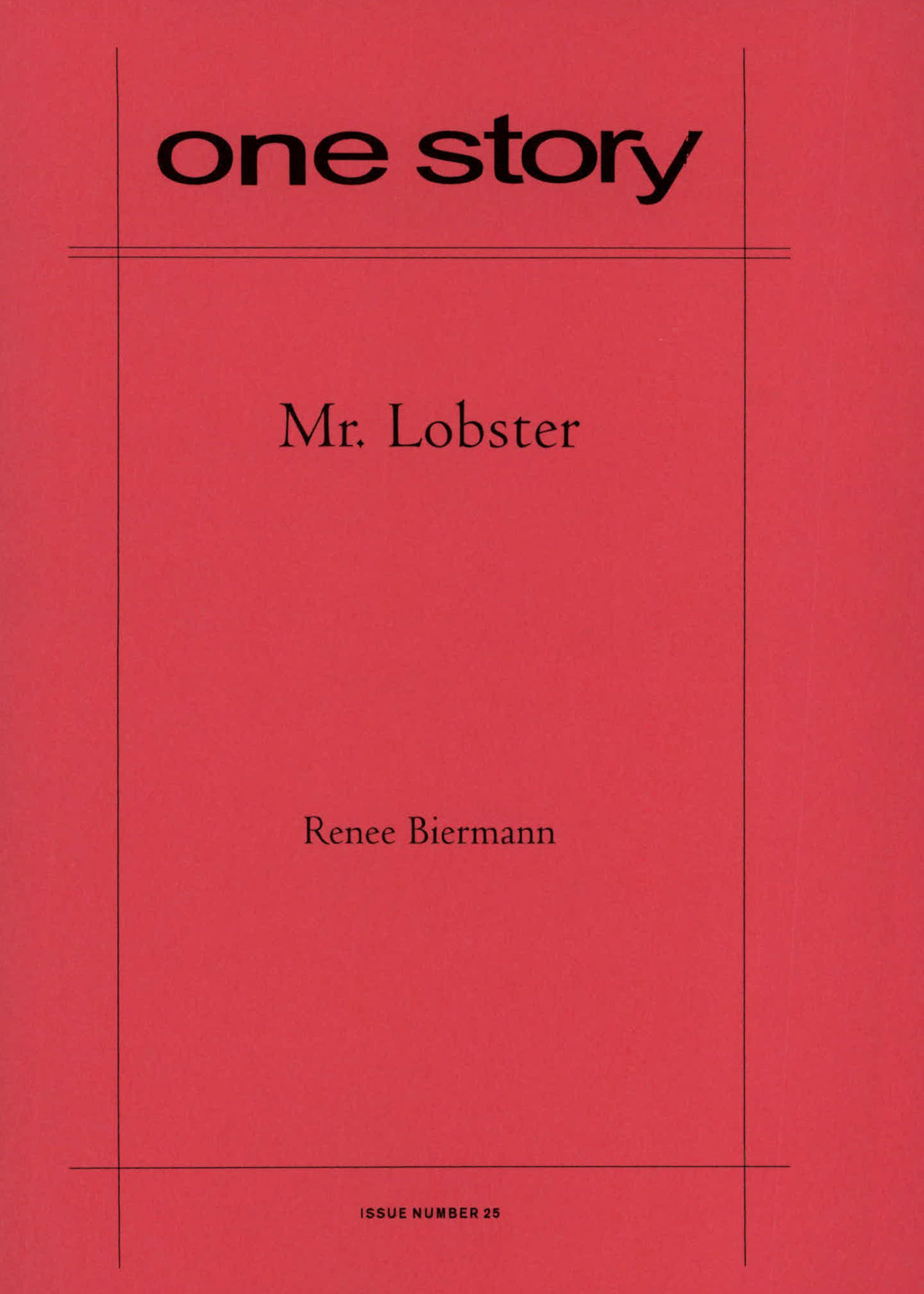
Mr. Lobster
$2.50
54 in stock
Excerpt
“Tena the Queena,” my sister hollered, “I’ve done fell in love. It’s best that you get used to it—calling me Mrs. Lobster that is…” Libby trailed off, giggled, and went back to fixing her hair-do with a big, fat can of Aquanet. Later that night, she went out the door, hopped down the stairs (careful of the third one that was split in the middle) and walked across the street to Mr. Lobster’s house, where the green drapes were pulled back, revealing a bright, luscious lobster dinner waiting on the table. There was also a green candle that matched the drapes and a fresh bottle of vodka he had bought special just for her. I sat on the porch and watched them eat that night, as I’m sure the whole street did, for Mr. Lobster’s house was the only one on that side of the road, and all fourteen houses on my side were full of down-right snoops.
Renee Biermann
Renee Biermann has had poetry published in The Fauquier Poetry Journal and The Limestone Circle. She lives in Chicago where she works as an editor for a publishing house. “Mr. Lobster” is her first fiction publication. She is currently working on a collection of creative nonfiction.
Q&A by Hannah Tinti
- HT: Where did the idea for this story come from?
- RB: My friend Rachel and I did an art swap a few years back. She gave me a mosaic of a scene I described to her, and I decided to write her a story about whatever topic she chose. When I asked her what she would like the story to be about, she said, “Mr. Lobster.” She had a stuffed lobster in her apartment. At the time, we had both just read The Girl in the Flammable Skirt by Aimee Bender. We both loved it and I think Rachel was hoping for some kind of story where Mr. Lobster is a real man with lobster hands. It didn’t turn out that way...
- HT: Do you find your fiction to be more character driven or plot driven?
- RB: My fiction usually comes from a quote I have heard or a suggestion, such as Rachel’s to write about Mr. Lobster. In this story, it was all about characters. I had no idea what was going to happen, but I started by plotting out First Street and assigning characters to each house. Then I moved into town and set up the businesses and character relationships. I had a notebook where I wrote down everyone’s name and what they did. For example, I knew that Crystal owned the party dress way before I knew what it was going to be used for. I played around with ideas in my head and in a notebook for about a month before I actually wrote the story.
- HT: What was the most challenging aspect of writing this story?
- RB: The biggest challenge was having friends and family read it and offer suggestions as to where I should take it. I gave early drafts to quite a few people who wanted me to expand it or make it into a novel. That pressure built up. I knew I had a good story, but I wanted it to be just that: a story. I wrote out a version and gave it to Rachel, but it didn’t end there. When enough people were asking where Libby went, I got frustrated and put the story away for almost a year. It drove me crazy. Then I pulled it back out, tinkered a bit, and sent it to One Story where Hannah and Maribeth gave me very helpful direction.
- HT: Where did you come up with the image of the moving graveyard?
- RB: That just happened in the writing process. I had thought enough about my characters that by the time I sat down to write it, the story came out all in one day (though it went through almost three years of revisions in the end). Somewhere along the line, the cemetery needed to be moved. It was just something that happened in the town the same year Libby disappeared. Just a coincidence, I suppose. Hannah later pointed out that it was as if death was coming toward Mr. Lobster. I really enjoy thinking of it that way. As writers, we often do not see what our readers see—I like hearing what people take away from the story.
- HT: Did Mr. Lobster kidnap Libby?
- RB: No comment.
- HT: What is the best bit of advice about writing you have ever received?
- RB: While I was in the process of rewriting Mr. Lobster, I wrote a letter to Maxine Kumin to tell her I writer’s block and ask for advice. We went through a few different correspondences. I told her at one point that I wanted to write my story my way, not the way all of my friends were asking me to write it—which was telling exactly what happened to Libby. She encouraged me to write just for me and not listen to anyone else. She also told me to join a writing group because the sheer jealousy of knowing other people are writing will make you want to write more. She said she experienced this with Anne Sexton when they were young writers. I didn’t join a writing group, but my sister writes as well and the jealousy thing keeps us both writing!
- HT: What are you working on now?
- RB: My favorite advice from college was “write what you know.” I like to write nonfiction shorts from my own life. I am most comfortable writing in that medium. I’m working on finding a way to put them together in a collection.
